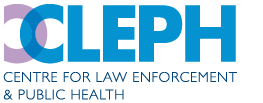Police call for drug reform at the Commission on Narcotic Drugs
Something completely new happened at this year’s Commission on Narcotic Drugs at the UN in Vienna. The Law Enforcement Action Partnership and the Centre for Law Enforcement and Public Health launched a Statement by Police calling for drug law reform, a document compiled and endorsed by a wide range of international policing leaders. The Statement was read by former undercover drugs cop Neil Woods to silent and intense scrutiny from a packed room. It was standing room only, with the doors wide open so the crowd in the corridor could listen.

Everyone seemed acutely aware of the significance of this event. The chair of the event, Police and Crime Commissioner Ron Hogg of Durham Constabulary in the UK, began by pointing out that it is 20 years since the CND declared the intent to have a drug free world by 2019. Ron pointed out that it is the police who were charged with carrying out this task, and now those police are answering back. Ron had spent 30 years as a police officer before taking charge of Durham and he made his point clear “I have attended the scenes of too many drug overdoses. We are here as members of the policing community to say to governments that current policies don’t work”.
Woods explained to the audience how illicit drug markets corrupt the institutions designed to combat them. Senior police everywhere accept that police organisations are corrupted by prohibition, he said. “It’s time for the general public to know these things”
Suzanne Sharkey had many in the crowd wiping their eyes as she explained how she had become suicidal through her own substance use disorder. Having seen it from both sides of the fence, also as an undercover police officer, she was clear that policing makes drug problems worse.
Peter Muyshondt, the Police Chief from Antwerp in Belgium, talked about the economics of drugs policing, making it clear that the current system is drastically counterproductive.
There were great contributions from the audience and quality debate after the presentation, including from a representative of INPUD, and also from the head of drugs investigations in Mauritius. It was clear that for those not already supportive of the stance taken by LEAP and CLEPH, the presentation had made them think afresh at their understanding of prohibition.
The television news company ITV were present and filmed the event, and carried out many interviews afterwards. On Monday 25th March the news piece went out on ITV in the UK at 10pm, with viewing figures of 2 million. It has also been tweeted on their account of 2 million followers. Many police commentators on social media have shared and engaged with the posts.
Now we need the help of everyone out there. Please bring this document to the attention of law enforcement people past and present. In order to get more signatures we need to make it well known …
